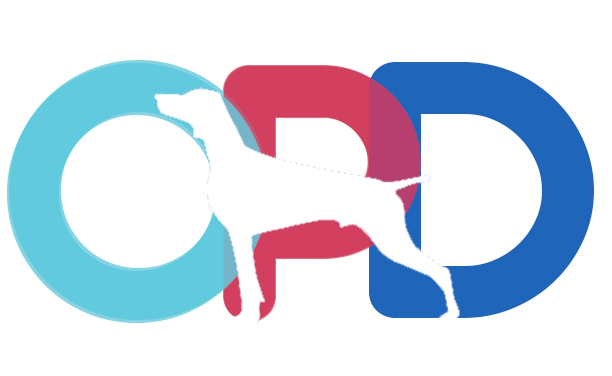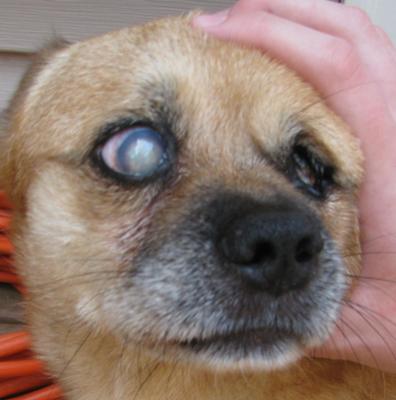On July 2nd I accidentally struck my dog in the right eye with the metal end of a leash. I struck him fairly hard. He seemed to be in immediate discomfort and didn’t do much but lay around for the next two days.
On July 4th I noticed cloudiness beginning to develop in the eye, so I called the 24hr vet service. They indicated that they didn’t think the problem was an emergency, so I made an appointment for the next day.
When I saw the vet on 7/5 they said there was swelling inside the cornea and gave me some prednisone drops (2 drops qid for 5 days).
On 7/11 the cloudiness in the eye was no better, and in fact worse, so I took my dog back. This time I saw a different vet who checked the pressure in the eye. It was around 50. He prescribed a round of oral prednisone in addition to the drops.
The Oral prednisone seemed to take away the dog’s sluggishness – he had not been himself really since this happened. However, it still did nothing to take away the cloudiness in the eye.
On 7/22 I took my dog back to the vet. This time I saw yet another vet who told me that this was a trauma cataract and would be permanent. He also indicated that it may cause him discomfort and get infected and that the eye may have to be removed. A friend of mine suggested checking for a homeopathic solution, so I found ya’ll online.
From what I’ve read I don’t have much hope that this will go away, but I’d like to at least take away the dog’s discomfort.
Comments for Treatment for trauma eye cataract in dog | ||
| ||
| ||
| ||
| ||
| ||
| ||
| ||
Do you believe in holistic pet care? If so, please tell your friends about us. Thank you for supporting our efforts!
Also see…
- Back to Dog Health Problems Symptoms / Dog Illness Signs Symptoms / Natural Dog Remedies
- Back to 10 Best Dog Food Options / Dog Food Ratings / Buy Dog Food Online
- Back to Conventional vs. Holistic Veterinarians
- Back to Organic Dog Supplies Online
- Back to Pet Friendly Airlines / Pet Friendly Travel
- Back to Organic Pet Digest Natural Dog Care Home Page



